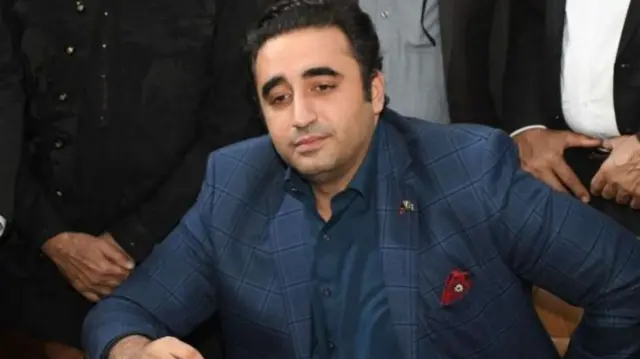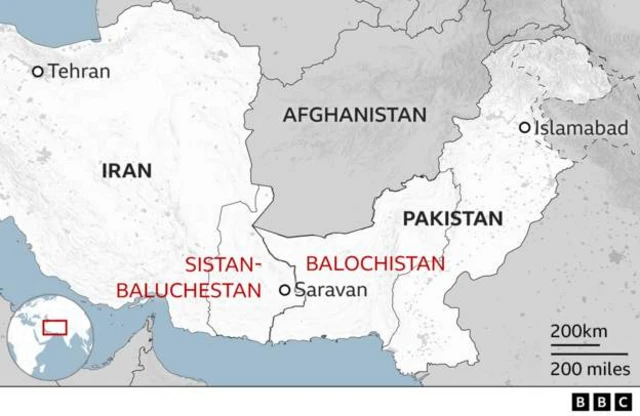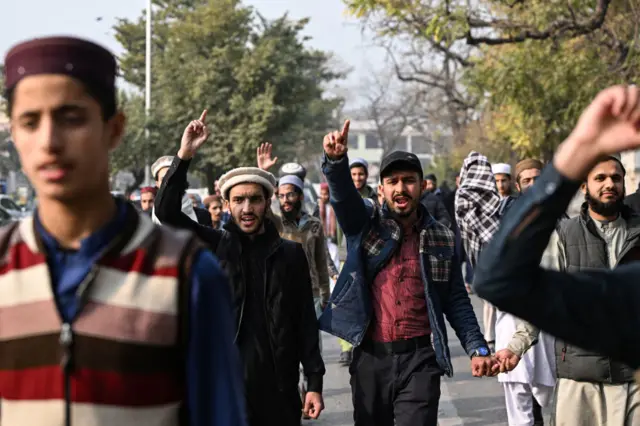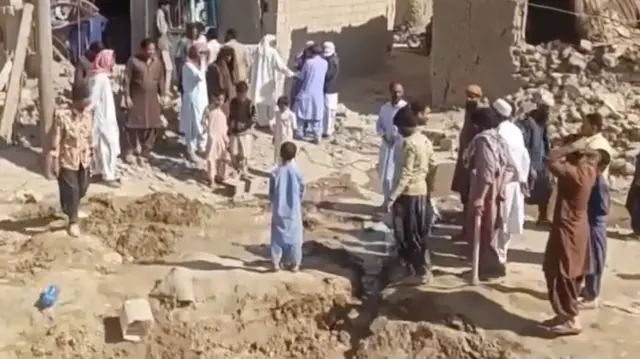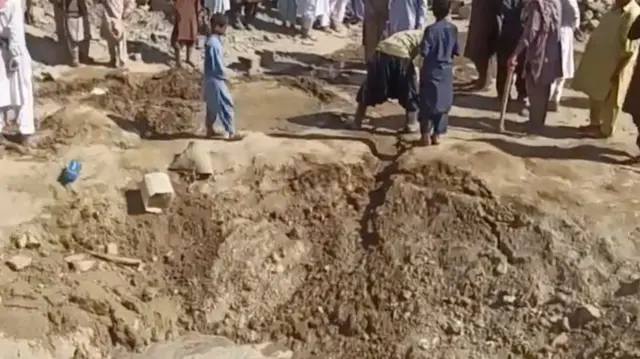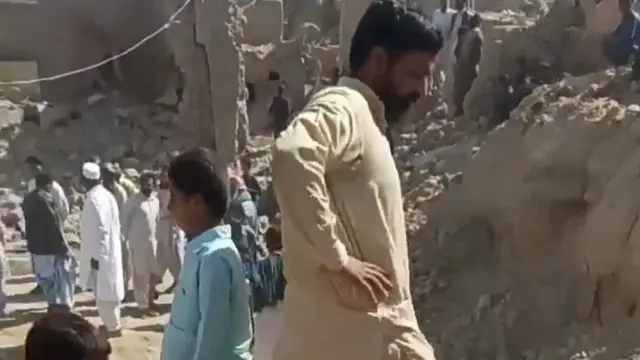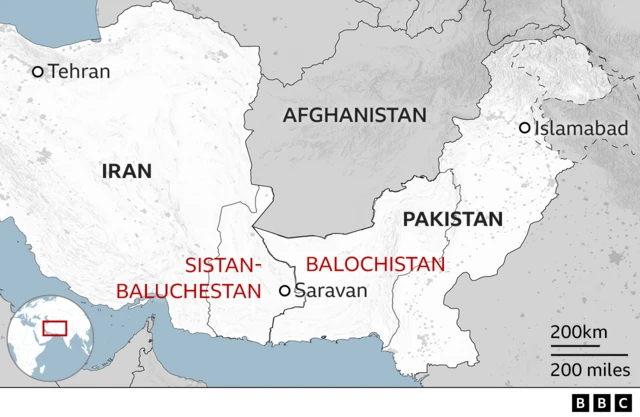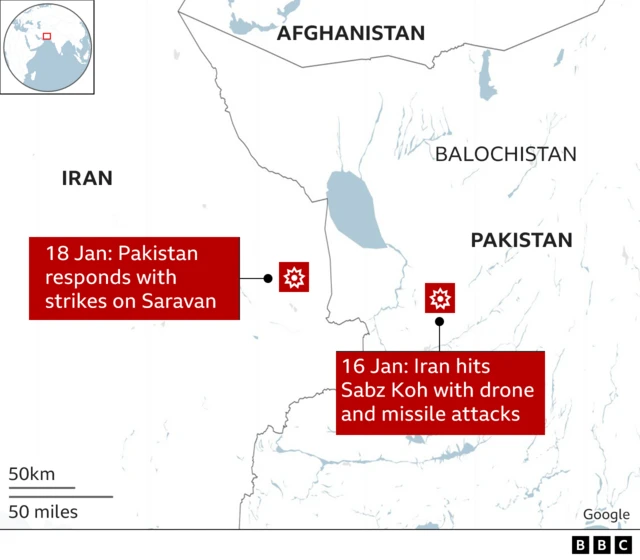Retaliatory attacks between 'brotherly neighbours'published at 17:00 GMT 18 January 2024
We're bringing our live coverage of the Pakistan strike in Iran to a close shortly. Here's a recap of the key developments today:
- Nine people were killed in Iran when Pakistan launched missile strikes, two days after Iran carried out strikes in Pakistan
- Pakistan's foreign ministry claims its strikes hit "terrorist hideouts" in Iran's south-eastern Sistan-Baluchestan province
- Iran condemned the attack, which it said killed three women, two men and four children, and summoned Pakistan's charge d'affaires to "request an explanation"
- Pakistan had fiercely condemned Iran's strike on Tuesday, which struck an area of Pakistan's Balochistan province near the Iranian border and which Islamabad said killed two children
- Iran insisted its strikes were not aimed at Pakistani citizens, only at Jaish al-Adl, an ethnic Baloch Sunni Muslim group that has carried out attacks inside Iran
- Regional experts and former politicians in Pakistan have suggested the country had to respond to Iran's earlier attack, but both sides are anxious to not escalate hostilities further between 'brotherly neighbours'
Today's page was written by Adam Durbin, Ece Goksedef, Gabriela Pomeroy, Emily McGarvey and Andrew Humphrey.
It was edited by Aoife Walsh, Marita Moloney and Nadia Ragozhina. Thank you for joining us.

